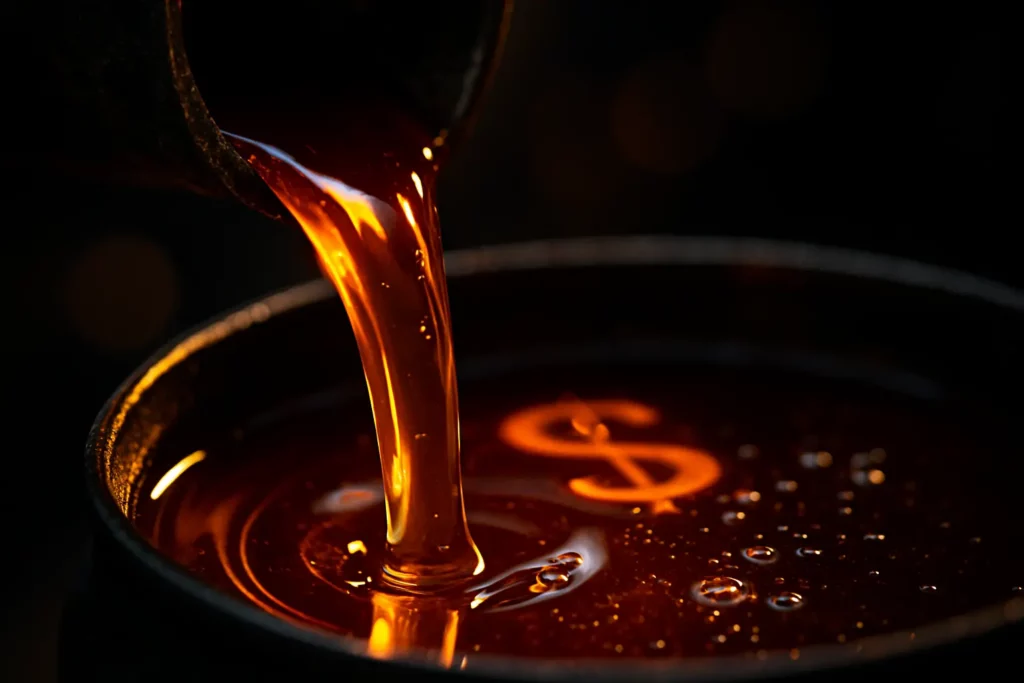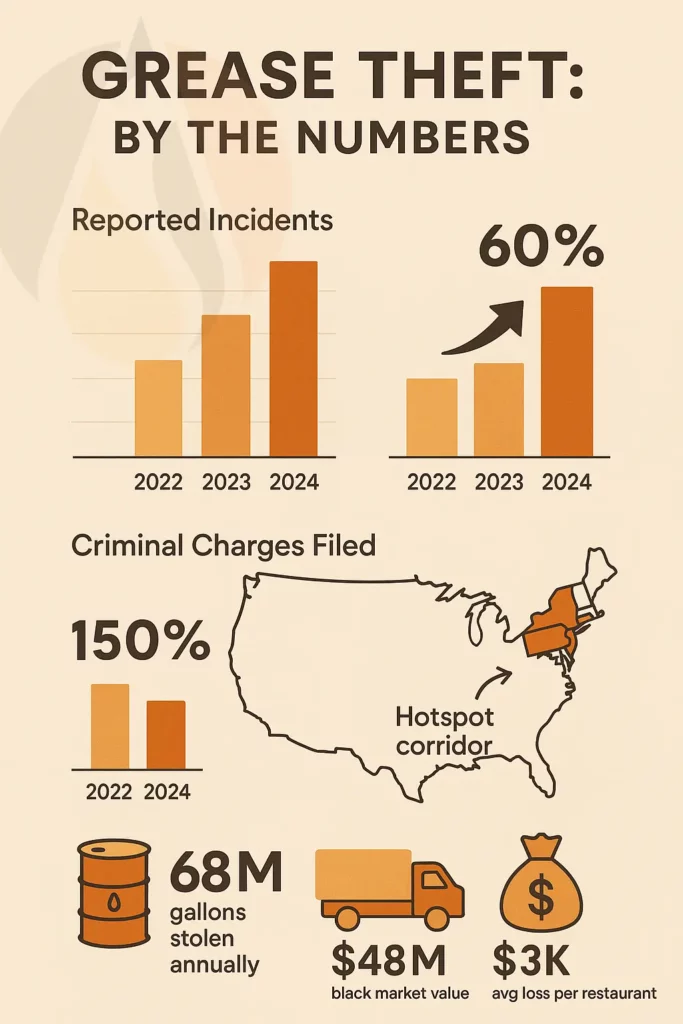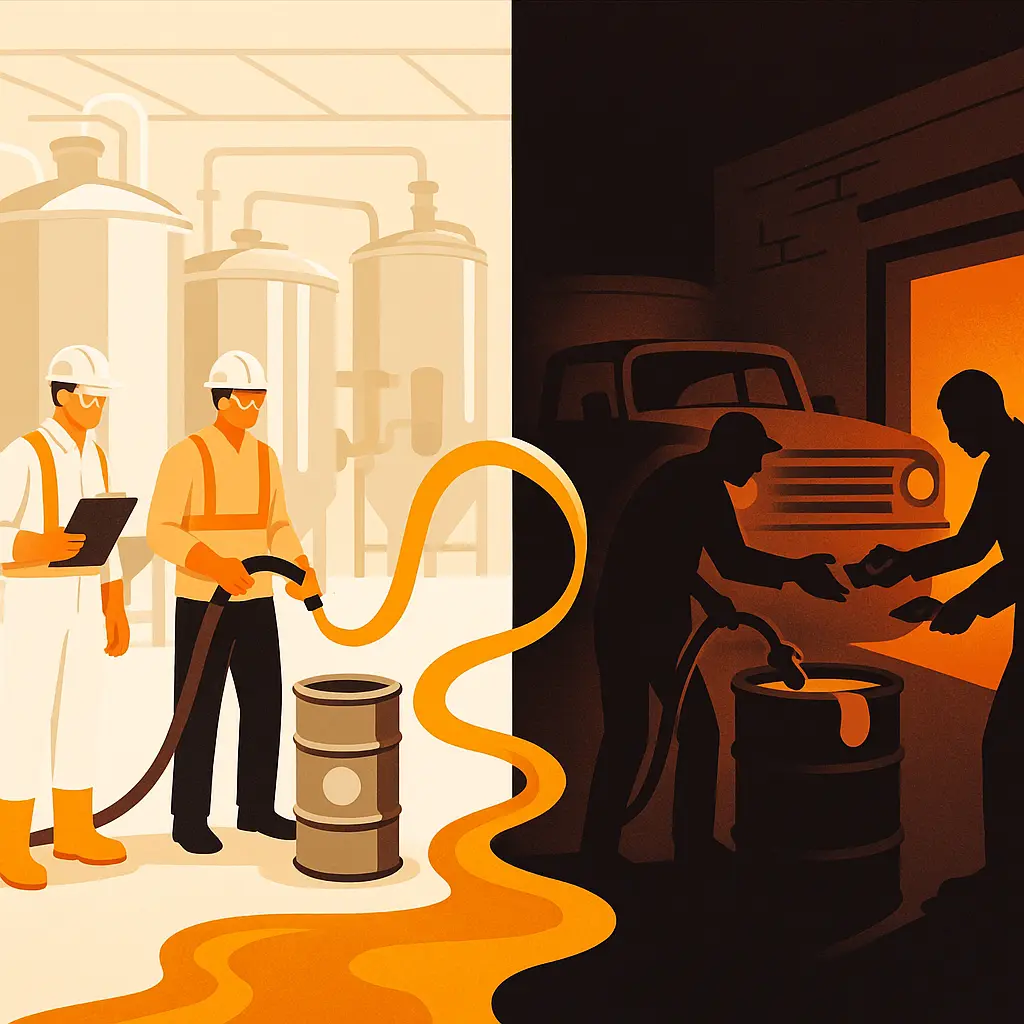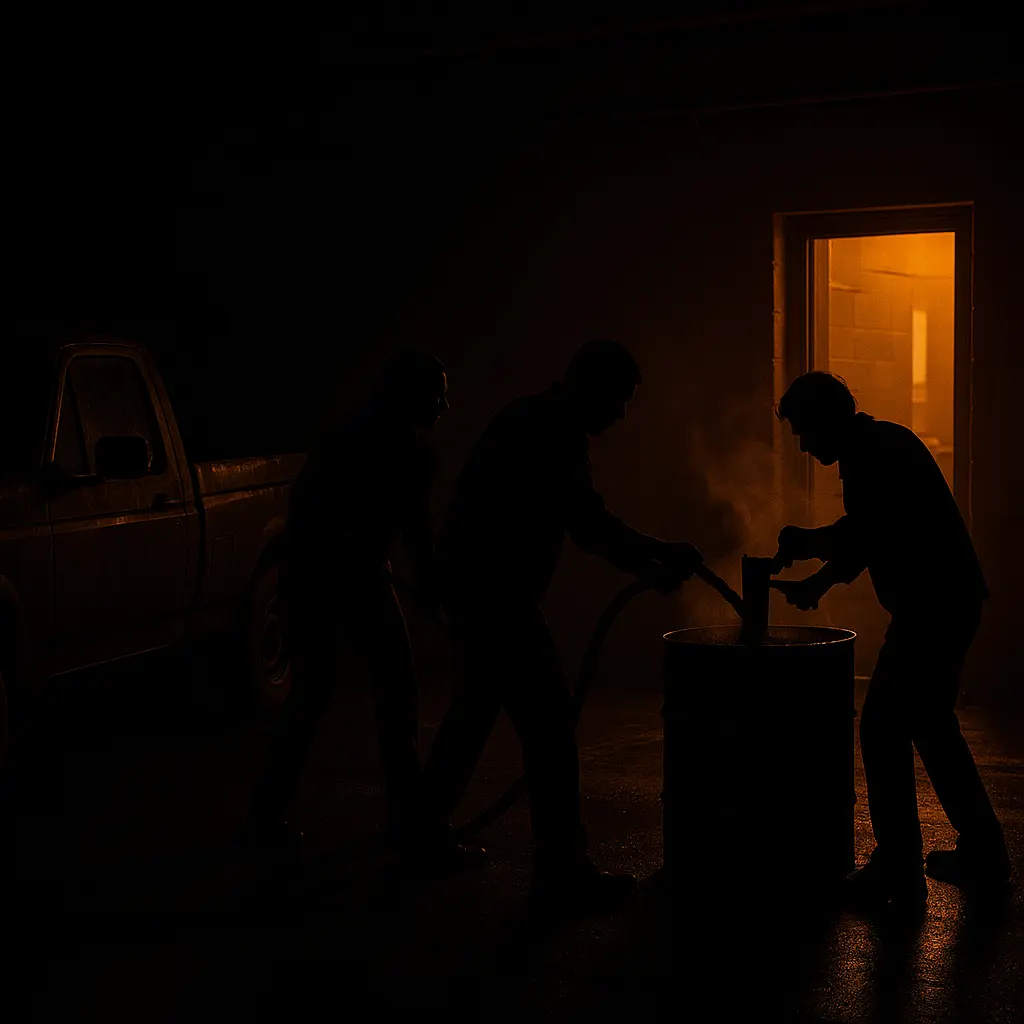Table of Contents (Skip to your section)
A new kind of street hustle
Everyone in the waste oil world now talks about grease theft and the black market economy. What once looked like trash; leftover cooking oil that kitchens paid to haul away has turned into a stream of valuable raw materials that move across the country and beyond. In the past, fryer waste sat on the back lot until someone with the thankless job of disposal hauled it off. Then biodiesel prices spiked, and a gallon of used cooking oil started fetching about $3 per gallon on the legal market. That single number rewrote the deal for everyone involved.
How the money math changed

Restaurants can now sell their fryer waste to renderers for $1 to $2 a gallon. Renderers such as Valley Proteins run each load through giant vats, skim off high‑end tallows, spin out yellow grease, and ship the stuff to soap makers, feed mills, or biofuel refineries. The process keeps waste out of landfills, cuts disposal expense, and hands owners a quiet revenue line. But easy money draws unwanted eyes and things get worse when thieves muscle in.
The midnight routine
Just after night‑fall, a beat‑up pickup truck rolls behind a restaurant. Two guys jump out, lift the plastic tank lid, drop a hose, and fire up a portable pump. In minutes they carry off a full load sometimes barrels heavy enough to feel like human bodies then vanish. They return in broad daylight if the coast looks clear, moving fast on short notice to empty more containers before the legit hauler arrives. The stolen goods head to a buyer who pays cash well below the legitimate rate, then flips the grease to processors selling on an underground market. The whole idea is simple: easy money for thieves, cheaper stock for uncritical brokers, and a spiral that drags honest businesses into more problems.
Numbers at a glance

- Reports of grease theft jumped 150 percent between 2005 and 2012, climbing to almost 6,000 incidents a year.
- Criminal charges rose from 12 to 188 in the same stretch.
- About 8 percent of fryer oil never reaches a legal recycler, draining nearly $40 million from the industry every year, according to the National Renderers Association.
- Tank repairs add another $3.26 million annually.
- The Baltimore / Washington, D.C. / Philadelphia region suffers more hits than any other city cluster in the United States.
Crime stories from the street
Officer Maunda Williams in Maryland knew something was off when she saw an unmarked tank truck collecting grease behind a fast‑food store. Her stop exposed a ring led by Anthony Lamont Fitzgerald, who faced multiple counts for raiding Valley Proteins tanks across three states. Some crews front as paper companies; others repaint the truck and keep moving, treating city alleys like open hunting ground.
Law steps in

The U.S. Department of Justice now treats big theft rings as interstate commodity crimes. Federal indictments carry up to 15 years behind bars and $500,000 fines. The National Renderers Association built a Grease Theft Task Force, and the Maryland U.S. Attorney’s Office blasts press releases every time a ring falls. Even with the heat on, the midnight‑pumping market stays nimble, hopping to another region as soon as headlines flare.
Industry ripple effects
Renderers lose volume. New environmental rules push plants toward scale and efficiency, forcing small outfits to merge or exit. Valley Proteins alone dropped more than $5 million last year to theft. Restaurant employees scramble when the hauler shows up to an empty tank. Add broken hardware, delayed pickups, and the deal gets ugly for everyone in the supply chain.
Beyond the alley: turning waste into fuel

When grease arrives legally, rendering plants break it down with industrial‑scale precision. Rendered products like meat‑and‑bone meal become core ingredients in animal feed, closing another loop in the food chain. Leftover grease turns into biodiesel that powers trucks, heats buildings, or mixes into jet fuel. Smart recycling clears landfills of sticky waste and keeps more carbon in the ground.
How to shut the pump down
Real fixes start with locking tanks, tagging every load with digital paperwork, and cutting off buyers who never ask where their oil comes from. With clear data in hand, law enforcement can track stolen property across state lines and close the door on the next crew before they lift another lid.
Grease may look humble, but the picture is huge: guard it, and it fuels a cleaner world; ignore it, and it keeps draining profits through the back door.









